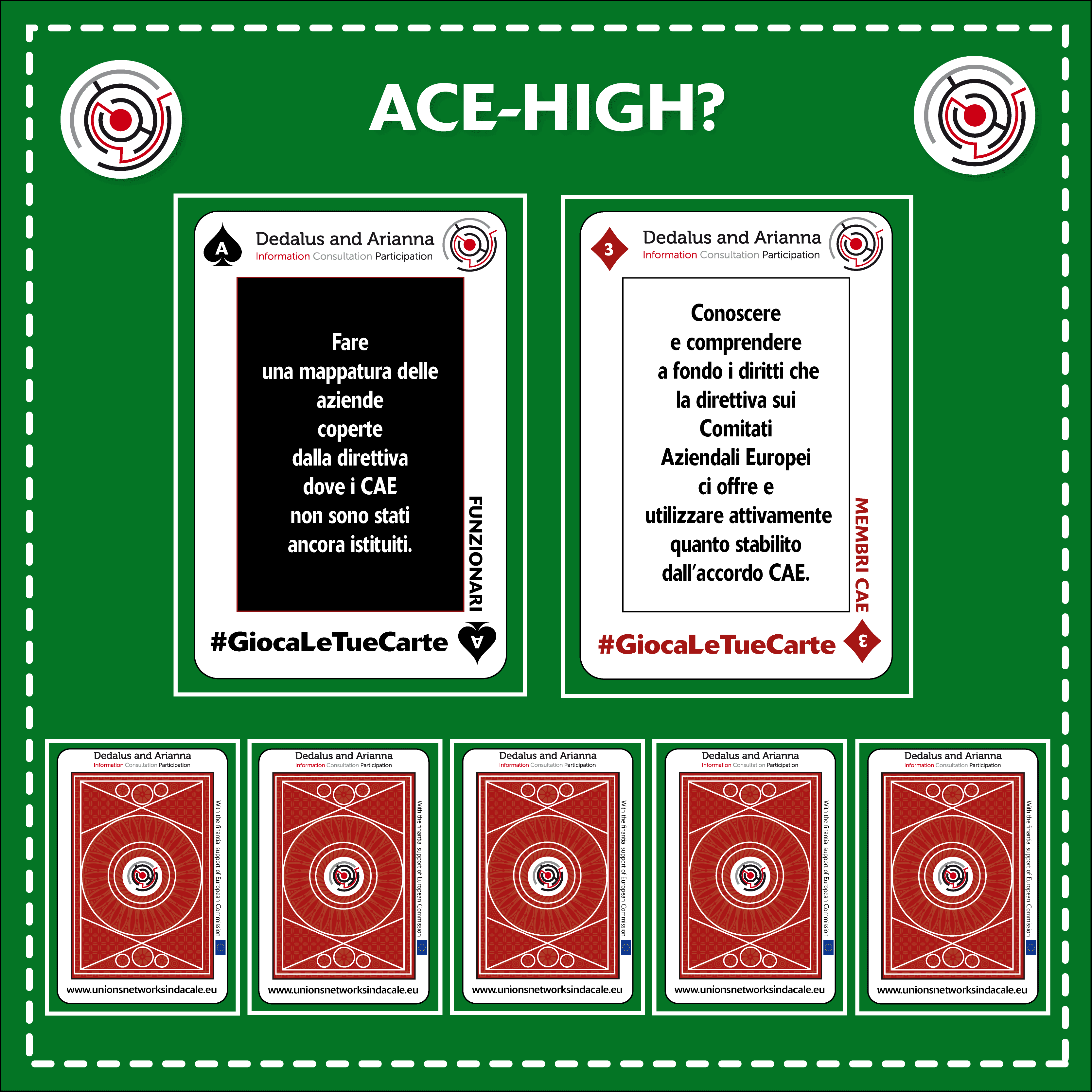
Communication strategy
In the era of the web 2.0, communication is taking on an increasingly central role, both as a tool to spread contents, experiences and values, and as a way of collecting information, stimulating debate and participation, receiving feedback on your own work. In practice, if communication in the past was a strictly one-directional issue linked to the printed paper, today it has taken on a relational and multi-channel nature: it has become a process of constant exchange between an indefinite number of actors communicating by means of a myriad of different tools and languages.
UNIONS – THE (SOCIAL) TRADE UNION NETWORK
 |
 |
 |
 |
In this view, throughout the project we have worked out a communication strategy that could put different channels, tools and languages into relation in an experimental approach seeking to involve every link in the network. In practical terms, it is a communication strategy that responds to 4 main guidelines. Starting from these considerations, the Dedalus and Arianna project has made its communication strategy one of its specific goals. An up-to-date communication, in fact, represents an important challenge for trade unions, especially in an international setting, where generating networks and sharing good action practices with the trade union organizations of other countries is an absolute priority.
INVOLVEMENT.
This is one of the key principles we are inspired by. If on the one hand, in fact, the production of contents by means of differentiated tools and languages is a necessary step, it is just as important to directly involve the actors present in the trade union network who are active on a European scale. In this view, especially on social networks, a wide diffusion of contents inevitably goes hand in hand with the multiplying effect of the network of activists who, by sharing and interacting with each other, contribute to passing on the information and making it circulate on the web. For this reason, the core of the communication strategy lies in feeding the single workers’ representative’s leading role and desire to face new challenges by means of their activity in EWCs, giving them appropriate training stimuli and tools. In fact, involvement also implies understanding the dynamics of the web 2.0 and learning how to use these new communication channels effectively. In other words, involvement represents a key principle to us and it becomes operational by means of training.
NARRATIVE.
Collecting the stories about good practices experienced by EWC members and trade unionists committed to global policies is a way of building a narrative about European trade union action, which starts from individual experiences and stories. A way of making this issue human and representing it in a new and more relational key. These are, in fact, issues which too often are perceived as distant by the citizenship. Telling the stories of trade unionists, therefore, apart from favouring the exchange of good practices, makes it possible to create a rhetoric for transnational trade union action able to stress its efforts, enthusiasm and passion and to contribute to bringing the European dimension closer to peoples’ everyday lives.
CLOSENESS TO THE TIMES AND TO LIFESTYLES.
Since modernity has imposed a frenetic pace on our lives and a spasmodic use of the web, also communication cannot remain indifferent to these transformations. Suffice it to think that users of the internet in Italy are 40 milion. On average, each one of them spends 44 hours and 43 minutes a month surfing on the net, and 70% of that activity is carried out on smartphones. In this context, social networks get the highest scores in terms of percentages and times of use.
Without bypassing the terrain of traditional communication, intercepting this big flow of users means concentrating our efforts on the web to develop suitable channels to meet peoples’ needs. These considerations have pushed us to give greater importance to our presence on social networks and to produce a mobile version of the website, in addition to the traditional one.
DIFFERENTIATED TARGET.
Engaging users who are different in terms of their interests and personal experience is a priority to us. Dedalus and Arianna, in fact, seeks to provide in-depth analyses and support tools for workers’ representatives in EWCs, and more in general to further trade union action on a European scale, without neglecting the general audience that peoples social networks and the world of the web. Therefore, we must conceive a communication strategy capable of differentiating the contents between in-depth materials and basic information about the role of EWCs and more in general about workers’ rights in the world.
This project has been funded with support from the European Commission. This publication reflects the views only of the author, and the Commission cannot be held responsible for any use which may be made of the information contained therein.
Downloads
- REPORT FINALE ICARUS (261.1 KiB, 1,770 hits)
 Coorindamento per andare oltre la direttiva
Coorindamento per andare oltre la direttiva
Date: Wed Sep 30 13:31 A cosa servono i CAE
A cosa servono i CAE
Date: Wed Sep 30 13:28 Statistiche sui CAE
Statistiche sui CAE
Date: Wed Sep 30 13:20
-

-

ANTONIO ZAGARI – EWC SUEZ, FIOM CGIL, MILAN
12 September 2016 By Dedalus -

MARIO ONGARO – THE COORDINATOR OF FISAC CGIL INTERNATIONAL DEPARTMENT
12 September 2016 By Dedalus
-

José Manuel López Viñolo, EWC Saica Pack, CCOO de Catalunya
16 February 2016 By Dedalus -

Andrea Capelli – Solvay EWC, Filctem Cgil, Milan
12 July 2016 By Dedalus -

-

GIULIO REGENI – UNDERSTANDING THE EGYPTIAN DEMOCRATIC WORKERS MOVEMENT
12 September 2016 By Dedalus -

Sonia Cattaneo – EWC Air Liquide, FEMCA CISL Milan
15 February 2016 By Dedalus -

Juan Ramón Amorós, EWC Boehringer-Ingelheim, CCOO
16 February 2016 By CCOO de Catalunya

Sito web a cura del Dipartimento Internazionale di CGIL Lombardia: internazionale@cgil.lombardia.it (Responsabile Fabio Ghelfi).


